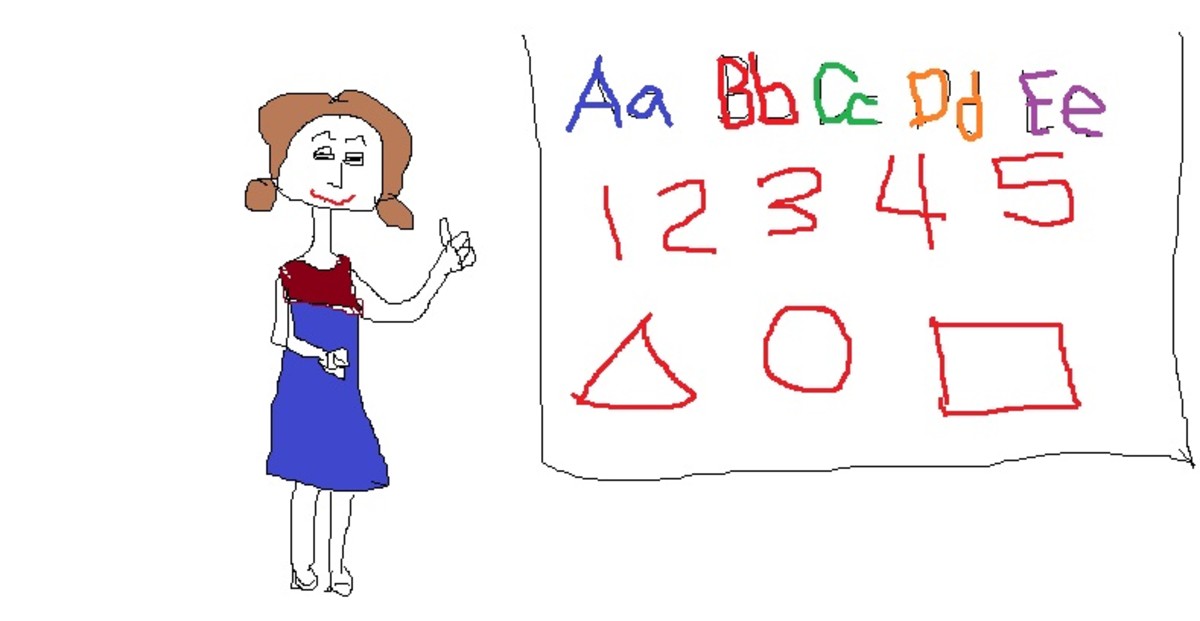THINKING ALOUD (Business & Law) FAMILY BUSINESS Resolving Disputes
Drug trafficking is an extraordinary crime and therefore the fight must also be extraordinary, we cannot fight the usual way.
— Budi Waseso Anti drug czar – Indonesia
FOUNDER bequeathed the business to his two sons
Original SHAREHOLDINGS in Yung Kee Holdings
| ||
|---|---|---|
Matriarch
| 10 %
| |
First Son
| 35 %
| |
Second Son
| 35 %
| |
Third Son
| 10 %
| |
Daughter
| 10 %
|
Re-aligned Shareholdings in Yung Kee Holdings
| ||
|---|---|---|
First Son
| 45 %
| |
Second Son
| 55 %
| |
Matriarch
| NIL
| She transferred her 10% shares to First Son
|
Third Son (deceased)
| NIL
| He bequested his shares to brother, the Second Son.
|
Daughter
| NIL
| She transferred her 10% shares to brother, the Second Son
|


Closing a family business
Writer: Chén Róng
The Asian business landscape is one dotted with family in-fighting. Such unsightly events are wrecking up otherwise good relationships between second and third generation heirs who have the good fortune to inherit massive wealth from their fore-fathers. In majority of cases, control of the family business is in the hands of a small group, ostensibly for the benefit of every member, but unfortunately, it is not always viewed as such by everyone. The family's portfolio may consist of tens of private companies owned through a number of trusts. Tearing into pieces something fathers, uncles and relatives had put together decades ago may not be an easy task. The challenge is: how to go about dismantling the business structure in an orderly way so that what remains will work for the collective interests of the family.
- Mending family rifts
A rift was perhaps inevitable. The heirs were pursuing their own careers, mostly outside the family business. They were resistant to the control of the small group of directors and their lack of transparency. These controlling directors were often being verbally accused of siphoning off family funds to enrich themselves. Younger family members are less connected to the legacy business built by their elders. It is important to be mindful of their suspicions and their different interests. In these circumstances, what should follow would be a plan, conceived by these controlling directors to reorganize the family holdings to give the heirs control over their own fortunes.
- Closing a small family business
If the breaking up of the legacy business is that of a small family business that does not involve a complex web of holding company and subsidiaries with diverse activities, things may seem a lot easier. If selling the business is the only solution to the family conflict, it pays to appoint a mediator for everyone to come away happy. A mediator serves to open the lines of communication. Being neutral, all parties will likely feel at ease to discuss all issues at hand.
When picking a mediator, always evaluate how well he/she understands the specific industry and region. The services of a valuation expert (if the mediator is not one) will include putting a price tag on the company by accurately assessing assets, cash flow, branding, local competition, etc. With a valuation, there are two possible methods to go about dismantling the business.
One way is to allow certain family members to stay in management and run the business. In this case, it is best for staying members to buy out other members using the valuation set by the appointed mediator (or valuer). If none of the current members want to work in business anymore, the business shall be put up for sale to an investor or a competitor by placing advertisements in business newspapers/magazines or the appointment of a broker.
- Closing a more complex family business
For complex family business with numerous joint ventures and subsidiary companies, the dismantling process will involve lots of haggling. A suggestion: Have the dissenting heirs collectively appoint their own lawyers. With lawyers on both sides negotiating every step, the heirs may reach a private agreement to restructure their holdings over a shorter period than one without the services of legal experts.
The execution may involve a number of phases: accounting for the biggest assets; creating stand-alone companies to establish value; and finding the right exit strategy for each, without triggering extra taxes on the companies. There may be a need for a structure to monitor the plan's progress, and a process to resolve disputes. A structural plan is one where everyone's incentives were aligned and targets had to be met. It will also have names of persons-in-charge with responsibility for execution of deals. Assets sold and names of buyers are accordingly recorded accurately. Such responsibility should go to family members who knew the businesses best.
Large asset sales may need the involvement of banks whose interest may not necessarily align with family interests. Banks may go for prompt sales and probably upset employee morale and disrupting otherwise smooth execution. Running an auction sale without involvement of a bank may be considered an alternative to private deals. This will involve considerable expenses. A private deal can save the family a tidy sum of money but some family members may question why private deals instead of running an auction to get the highest price.
- Happy Ending
Hostilities between family members will cool with sale monies rolling in and with regular updates on the plan's progress. A patient approach may be the key to a successful breakup of the business as against selling it immediately and hastily as some families do. Not all relatives are on speaking terms, but the right thing to do is to encourage them to rebuild ties within the family. Finding the right formula to re-structure the business is the way to building such family ties.
READ OTHER STORIES AT:
Chenrong.hubpages.com
Disclaimer
The writer makes no warranty of any kind with respect to the subject matter included herein or the completeness or accuracy of this article which is merely an expression of his own opinion. The writer is not responsible for any actions (or lack thereof) taken as a result of relying on or in any way using information contained in this article and in no event shall be liable for any damages resulting from reliance on or use of this information. Without limiting the above the writer shall have no responsibility for any act or omission on his part. Readers should take specific advice from qualified professionals when dealing with specific situations.
FAMILY-BASED BUSINESS sank in family feud
Writer: Chen Rong
Have I derailed on my topic with the caption quote? No, I do not think so if you just read on.
Budi Waseso proposed to build a prison island for drug convicts surrounded by crocodiles, tigers and piranhas as guards because he could no longer find trustworthy people to watch over the prisoners.
He has a point although his proposal did cause sparkling ridicule at some quarters. Every family has a difficult story to tell and quarrels among siblings and relatives may not be solved the usual way -- there is no one size that fits all. It may require extraordinary ways to get the house in order and nobody should find their approach ridiculous and unthinkable when dirty linen gets washed in public.
Hong Kong's Yung Kee restaurant is one such unfortunate event. After the death of family patriarch, infighting ensued over the corporate assets he had left among several family members. There are people who just love frolicking at people's unfortunate circumstances, especially the rich and successful who are falling on hard times; and talking at length with friends and associates and enjoying every moment over their afternoon tea.
Such sadistic rejoicing does not benefit us. But the lessons that can be drawn from the episode may help our own circumstances, especially if we running a family business even if it is not one as successful as Yung Kee’s. It serves our interest better if we examine how the family got into such a mess taking that extraordinary route -- the court of law.
The Corporate Structure
Yung Kee Holdings Limited is an investment holding company incorporated in the British Virgin Islands (BVI) although it has no business operations there. Instead, the holding company owns all shares in the Yung Kee restaurant business in Hong Kong via a BVI subsidiary. It works out to be a complex corporate structure of subsidiaries layering over subsidiaries. This structure was designed to distance the ultimate ownership of the assets from Hong Kong, hence avoid paying estate duty.
Business people should note that generally courts will not wind up companies registered in other jurisdictions. Shareholder disputes brought to local courts for decision will be scrutinized to see if they intend to establish a place of business: and in this case, Hong Kong. That the company has shareholders and business activities in Hong Kong is not conclusive evidence of its intention to establish a place of business there.
The family feud
The founder of the restaurant bequested his business to his wife, three sons and a daughter as joint owners. The first and second son have equal shares of thirty-five (35%) with the other members each owning ten percent (10%) of the balance thirty percent (30%). Things bumped along although there were apparent skirmishes between siblings. But the dispute finally surfaced when the third son died, and with him giving away his ten percent (10%) shares to the eldest brother. That event tilted the otherwise level playing field with the first son (Ron) now holding forty-five percent shares in the company.
The founder's wife as mother (Madam Mak) to the sons again leveled the playing field by giving her ten percent shares to the second son. Before long, this power sharing arrangement was again tilted in favour of the first son when their sister decided on transferring her ten percent (10%) shares to the elder brother. The first son then ended up with fifty-five percent (55%) shares in the company as against forty-five percent (45%) held by the younger brother.
Both matriarch and her second son (Kinson) were removed as directors of the company. It was the last straw that broke the camel's back. Kinson applied to the court for winding up of the business. Alternatively, his shares be bought over by the other shareholders. No offer was made and he then took the drastic step of getting the court's help in winding up the company and distributing the proceeds of sales of its assets. He finally succeeded in The Hong Kong court of final appeal ordering the restaurant's parent company to wind up with 28 days, unless the families of the founder's sons could agree on a buyout.
The writer’s thoughts
This is no criticism of the Yung family. Circumstances and inter-personal relationships bind a family. But it can also wreck a family. If family members are not too careful, harsh words and improper actions can build up into a time bomb; and when it explodes it will inflict sufferings for all. I can only say: my heart goes out to the Yung family and hope they have a happy ending to this unfortunate episode.
The founder having an extended family has made the issue a lot more complex. But Chinese family business seems to share a common thread in many instances, even if it does not have the same intriguing twists and turns of the Yung family. The founding father sweat it out and eventually built a successful business but leaving the wife to care for his children and knowing little of their indiscretions. Chinese mothers generally favour sons over their daughters who at times have to sacrifice their well-being whenever their brothers experience troubles or sorts. If a Chinese mother has more than one son, she favours one over others. Oftentimes, the favoured one does the little and gets the most out of the family; and most of what are ugly happenings are hidden away from view of the father. The father who barely spends time at home would fly in rage when his children fail to meet up to his high expectations. But the downside of loving a son the wrong way leads to other members of the family feeling disenchanted. The unhappy events keep piling up.
Life is a trade-of; it is a zero-sum game. You cannot expect other people to help bring up respectable off springs while you spend most of your time in the office and at golf courses. I have seen modern parents in my country going all out to reward their children for their academic achievements -- showering them with expensive gifts and holidays. So long as their scholarly children make them proud parents to the world, they will turn a blind eye on all faults and misdemeanours. I have also live long enough to have seen straight-A students down right rude to their parents and siblings. In one case, schoolmates of my daughter actually look down on their own parents because they are not university graduates. They were biting the hands that feed them!
My philosophy is never to express great expectations on my children because I believe everyone has different talents; and not every person is endowed equally with high intelligence quotients. When my children were young, all I asked of them was to try their utmost in everything they do; honest to their own selves that they have actually tried their best. If they fail despite hard work, our world does not end there. We will all calmly sit down; together we will map a way out of that seemingly blind alley. Success in life should not be narrowly defined.
I have two daughters, actually three, if my god-daughter -- oldest of the three - gets counted as family member. My children were not high-flyers in school. But my wordy advice did make them try their best without the constant fear of failure. They have become better people making valuable contributions to society. They work and play hard while facing daily work challenges. My children are now in their thirties. The youngest is a barrister/lawyer and the other two girls, Chartered Accountants. To readers who are able to debunk my life philosophy of a zero-sum game as a myth -- my heartfelt congratulations! You must be blessed. I am just comfortable, not rich by your standard. It is a trade-off.
Lessons from the Yung family saga
I have discussed at length on the subject of a zero-sum game. If shareholders are at loggerheads, the business must be sold. This is not the time for personal pride and self- absorption. It is time to get a trusted family friend as the family mediator. He has to hold down tempers and conduct the negotiations among family members. Everyone has to work together on the path of getting the business sold as a going concern to get the best sale price. Going to court will hurt everyone. Once the family squabble goes viral and the court ordering the winding up of the company, shareholders cannot hope to reap handsome gains from sale of the business. Whatever goodwill that may be gained from its 70 long years of history can be wiped out over-night. Is the secret roost duck recipe by itself good enough? Are there other pre-requisites such as roasting skills? Who will buy the business when the shareholders have themselves already set up similar competing business? Buyers will only pay for the real-estate the restaurant sits on!
But what lessons are there for business people from a commercial perspective?
Having your company registered in British Virgin Islands or one of offshore havens may not be a good choice if you have in mind to evade tax; or as a tax avoidance strategy. Surely shareholders and directors of companies would want their business known more intimately by their customers; and for that reason would not locate it in BVI or The Caymans.
Governments are struggling with cash-flow. It is a constant headache funding public services of a country. And there you are, while enjoying all the good things that your country offers you, you contribute nothing in return. Those who keep taking from a country with little or no contributions are themselves in danger in this new era. Such people cannot hope a court of law will look favourably at their case knowing they have no noble intentions to start with - layering of subsidiary on subsidiary to hide your wealth. In a case similar to the Yung family, the court might decide: We have no jurisdiction in this case. The inconvenience and costs of getting a legal battle fought in an overseas venue can be so huge that only businesses with deep pockets can put up with. Topping it there is legal uncertainties because of the unfamiliar laws in other jurisdictions.
What is more; once the matter is in public view, your customers, friends and relatives may look at you with disdain. Increasingly, the general public expect businesses to embrace corporate social responsibilities. Good corporate citizens must support programmes that benefit the communities they serve. They must keep supporting institutions pursuing worthwhile causes.
If you have a good reason to use a tax haven, have this in mind: there is nothing seemingly wrong with minimising tax and to keep your tax bill down by using legitimate means. Any business paying no tax on huge income is risking a social backlash. With the millions of apps, websites and other platforms for people to communicate all over the Internet these days, the power of social media can make or break any business.
Read other stories @ chenrong.hubpages.com


One-size-fits-all Ingredients for low fat diet
- fruits e.g. papaya, kiwi-fruits are high in vitamin-c
- complex carbohydrates e.g. brown rice
- whole grains e.g. bread
- no products made from white flour e.g. white bread

General Mandate for capital increase
It is a capital increase process where shareholders approve the number of shares and the types of allotment at a shareholder's meeting held in advance. It authorises the company's board of directors to decide on the details of the share issue and the allotment process as and when it deems appropriate.
It is not uncommon for shareholders to give such a general mandate for share increase to the directors inorder to reduce procedures and time taken. They often do so in the belief that directors would only exercise it in honesty and good faith to raise capital when needed. Shareholders can provide such a general mandate, but only if they put in the necessary proviso. For instance, an assurance that the new shareholder is not intended to hold a key appointment such as that of an executive officer.
Shareholders of a company should not be pressurized into signing a general mandate on such broad terms that may give directors almost a free hand in carrying out the issuing of new shares. At the same time, there is a risk that a share increase may not be necessarily done for the benefits of the company. There were cases where directors had no clear reason for wanting a share placement. And the allotment was also made by them at a price with a deep discount to cash-per-share of the company. There is also no specific immediate use of proceeds by the company.
It is true that unhappy shareholders can try to revoke the general share mandate at an extraordinary meeting. This can be done after the directors have made known their decisions and proceded with the issuing of new shares. But by revoking the mandate it means shareholders are preparing for a battle between themselves. And if shareholders of the placement shares decline to abstain from voting, the battle line gets more complicated.
Read other stories @ chenrong.hubpages.com


FAMILY CONSTITUTION designed to resolve conflicts
Writer: Chenrong
When I was young, people who wish to keep fighting fish as a hobby had to keep them in separate jars. There was a further need to separate the jars with card boards so that fishes do not see one another through the walls of those glass jars. Fighting-fish cannot live with their own kinds and other fish types as the latter get bullied and battered to death. However, today's fish farmers are able to get fighting fish to live peacefully with other species of fish by cutting out designated areas where fishes can have their privacy and share responsibility of communal living. For their own selfish reason, fish farmers will not encourage fishing-fish to live peacefully as a family. That would spell the end of business for fish farmers.
Likewise, human beings can be shown the way to live peacefully together as a happy family. If they go into business, they share responsibilities to keep the family happily together. Each member has designated areas of work assignments. I am talking about a Family Constitution. Do read on.
Patriarch of Yung Kee Restaurant had considered his distribution of shares was free from bias, dishonesty, or injustice among his family members. But what he did not realise was the entire distribution equation could be changed after his death. People by nature have their own individual thinking and emotional setup as humans. Members of a family business may not necessarily go along with the hopes and plans of its patriarch. Relationships between family members get sour and irrevocably damaged with disputes over money matters.
Patriarch does nothing!
There is a hands-off way out for the patriarch. Doing nothing is an option. But there are risks unless you could not care less what happens after your own demise.
One family I know: the patriarch actually left his estate to his youngest son -- holding on trust for distribution other family members. Apparently, the eldest son was the most capable of them all, but he was not the patriarch's biological son. And he was also not an adopted son. The patriarch did look askance like the Red Indian Chief who pursued his wife for an answer: "Many moon come, Chief no come, how come baby come?” Blood is always thicker than water. Instead of making a firm decision not to give the eldest son a share, he chose a more comfortable way out of his cocoon. He did it through verbal instructions to his youngest son as to how he would want his wealth distributed after his death. The unfortunate saga ended in a bitter court battle. This is not a make-up story. I cannot name the family.
What was once well-kept secrets came to light with dirty linen washed in full view of friends and business associates?
Family Trust
Shares in a holding company do not have to be distributed but left in a Family Trust. It is simply a form of lifetime trust established for the benefit of a particular family or for certain members of that family.
The Family Trust becomes the owner of the common shares of the incorporated family business. As the owner it would benefit from the future growth in the value of the business. The Family Trust would also receive dividends on the shares it owns. In turn the Trust pays beneficiaries dividends it receives.
I do not know enough to help you. You need talk to a Trusts Lawyer.
Distribution of Shares
Patriarchs who insist on distributing shares to family members I have this to tell you - what was taught me by my mom! If you have too many chefs in your kitchen and hoping at least one would prepare you a sumptuous meal, you might end up with an empty stomach. Nothing gets done because each relies on another to do it. If you really need more than one chef, ensure you have a lead chef. Give him specific instructions in preparing your meals. It will then be the lead chef to supervise and share out daily cooking responsibility.
In similar fashion, you have to give major shareholdings to a family member you trust as the right candidate to continue running the business as its leader. He needs the clout to lead the other team members. It should not matter if the top post gets filled by a younger daughter whom you regard as the most suitable person. Other family members may be compensated in other ways such as inheriting your valuable collections of Chinese ink paintings. Art pieces may grow in value over time. China now possesses the second-largest art market in the world, after the United States. China's growing elite class is now avid collectors of Chinese arts. This is just one probable way as there are others like club memberships.
Life insurance policy pay-outs are another route a patriarch may consider as compensation to other siblings with fewer share holdings. A universal life insurance policy works the same way as other life policies. It pays out on the death of the insured patriarch.
Family Constitution
If you have not already done so, do so now!
The patriarch must design a family constitution that serves as guidelines as to how the business should be managed and run by his heirs; and decisions made and conditions as to how it should be operated. It should include a family council with a named leader who will also preside over decisions such as how distributions are to be shared, if not already determined in a Family Trust. There may include methods as to how important business decisions or disputes be managed, for instance, simple majority in most instances or 75% of votes for major ones.
The Family Constitution may include broad principles in a number of areas:
- The scope and use of the office by members of the family; it is not uncommon that family members over-crowd existing office premises for their own private projects. I have witnessed such oppressive acts by senior members taking place in one family business.
- Expenditures on joint and individual projects carried on by family members should be kept separate. Some members of the family had their private entertainment expenses lobed into company accounts. I have heard this story being told and retold in local private enterprises.
- The involvement of the same external advisers in private activities carried on by the relatives and siblings running the family business. These legal bills get lumped as family business accounts. It will usually define the persons having particular roles in relation to the family business, the family office or family trusts. Some family members wear many hats; depending on when it serves their interests to put a finger in the pie with projects that has nothing to do with the family business.
- The constitution should include specific policies on investment, education, employment by the family business. Private investments that lose money get written off and became losses in the portfolio of the family business, because there is no clear dividing lines between private and company portfolio; and buying/selling activities go hand-in-hand. Similarly, third generation family members receiving their overseas education and all incidental expenses are lumped together as family business expenses.
These are just some of the issues that will spark off unhappiness and arguments among family members. In one instance that I was aware, the one brother always travelled on first-class flights resulting in other sibling emulating the practice because they did not want to lose out. When times were great, such expenses are not being questioned. During lean business periods, tempers get worked up! Siblings could be seen getting into arguments not knowing why business trips should not be standardized and everyone travels on economy class.
These examples are just a few matters a family business should keep tabs on. There are many more that may be relevant to particular families. Every family has its own special dynamics. It is important to think out critical areas of probable disputes for inclusion in the family constitution. There may be instances of marriage breakdown of certain members of the family, or the risk that a family member becoming the "odd-person-out in that he fails to properly engage with the family business or its ethos.
One-size-fits-all Family Constitution does not work, that is my opinion. Researchers have discovered that what constitutes a healthy food for one person may actually lead another to gain weight. Some experience a spike in blood sugar after eating tomatoes which are considered low-fat, nutritious food. Others have their blood sugar rose after consuming sushi, but ice-cream produces little or no effect on their metabolic response. In reality, there are profound differences between individuals just as there are different challenges faced by family businesses. A standard diet that aims to keep blood sugar low by including fruit, vegetables and complex carbohydrates such as brown rice and whole grains may not necessarily keep everyone in the pink of health.
Use this write-up only as a guide and work round challenges to suit your special circumstances.



